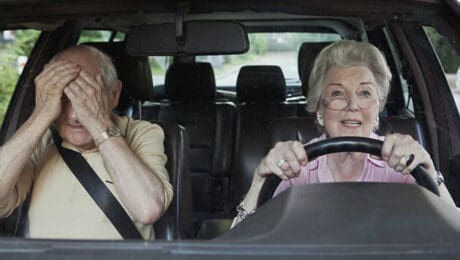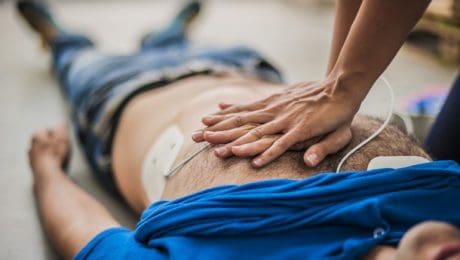What Is Home Health Care For Seniors?
What Is Home Health Care?
Home health care is professional assistance to the senior or extremely ill persons at your home. Older persons lack physical and mental health to complete their daily tasks. So, they need constant assistance. But, you may not have enough time to take care of them. In that case, you can hire in-home health care services.
A home health care service offers professionally trained caregivers. Hence, they can take care of your near and dear ones perfectly.
If you live around Durham, then you can search for home health care in Durham. Hire trained and experienced caregivers and keep your loved ones safe.
Importance of In-Home Health Care
1) Saves Your Precious Time
Nowadays, everybody is busy. You may have to go to your job or you may have a busy schedule. As a result, it might be impossible for you to take care of an ailing senior person.
When you hire in-home health care services, they can take care of your senior family members. This means you can live your busy life without being worried about your helpless loved ones.
2) Helps To Live An Independent Life
Seniors may need bathing or feeding assistance. Apart from that, they may require help for incontinence or dressing. So, they have to call for assistance every time they want help.
But, in-home health care professionals would be always with your old family member. The caregivers would be ready to assist him/her in every moment. Thus, a senior person can live an independent life.
3) Keeps Your Loved One Mentally Happy
Older persons want to share their stories and they too want to talk to a person. But, young family members often don’t have time to listen to them. This creates mental loneliness in them. A caregiver can talk to your loved ones and they can become a good companion. Thus, a senior person can be mentally happy with a professional caregiver.
4) Helps To Live A Peaceful Life
A surprising number of Americans don’t want to spend their time away from home. They love their homes and they want to stay there.
By hiring an in-home health care assistant, you would be helping your parents to live a peaceful life. The health care professionals would visit your house daily and they can also support seniors for 24-hours. So, help your loved ones to live a peaceful homely life by hiring in-home health care professionals.
5) Enhances Safety
When you are not at home. seniors can meet accidents or they can fall. Even, a senior person can experience sudden health problems. But, if you have a reliable caregiver at your home, then you should not be worried. A healthcare professional can help your loved ones in an emergency and they can keep your senior family members safe.
Services Offered By Senior Home Health Care Companies (In General)
- In-Home Care
- Respite Care
- Dementia Care
- Alzheimer’s Care
- Parkinson’s Care
- Post Surgery Care
- Personal Care
- End-Of-Life Support Care
So, you can search for home health care in Durham and you can hire reliable in-home health care services. But, you should always hire trained and experienced professionals. Because only properly trained health caregivers can take care of your loved ones perfectly.
- Published in IN HOME CARE
Senior Driving Safety
Should You Wait for an Accident to Take the Car Keys Away from Your Senior Parent?
Most adult children don’t know how to determine if their parent should be driving or not. Read more to find out if your senior parent is safe to be on the road.
How to Tell if Your Older Adult Parent is Safe to Drive
There is a moment that comes for nearly every senior and their loved ones: the day they decide that driving is no longer an option. This can be difficult for everyone involved, but if you notice your loved one’s senses are in decline, should you wait for an accident before you take the keys from the older adult in your life? The answer is usually “no.”
Why Are Seniors More Prone to Driving Accidents?
No one wants to give up their independence, but you may actually be helping your older parent live a longer, safer life by restricting their driving privileges. The truth is, seniors over age of 65 are almost twice as likely to die in car accidents than in any other type of accident. In fact, 15 older adults die in car accidents every day and 586 are injured daily. In addition, seniors are more likely to cause an accident. This is especially true over the age of 70. Between the ages of 70 and 74, there is a spike in car accidents. Seniors over the age of 85 have even more accidents – and they tend to be more serious. The reasons for this is due to increased susceptibility to medical complications and injury. Also, seniors tend to cause more accidents due to decline in vision and cognitive function. Medications can also play a part in the increase in accidents as they can cause impairment in drivers.
How to Decrease Chances of Accidents Behind the Wheel
While the statistics may sound discouraging, there are ways to reduce the chance of a senior you love having an accident:
- If possible, avoid medications with side effects.
- Plan your route before driving.
- This will help avoid confusion later on.If you need glasses or corrective lenses, wear them.
- And consider anti-reflective coatings to help minimize glare.
Finally, one of the best ways to decrease the chance of an accident is to not drive at all. With today’s home care options, a senior can use the aid of a home caregiver to run errands and drive to appointments and other outings. If your loved one has poor vision, has arthritis or a condition that makes it difficult to turn their head, having a home care aid assist with transportation to appointments, grocery runs, and to stay active and connected in the community can be a great idea. While it’s sometimes difficult to have the conversation about driving with your loved one, don’t wait until something happens. Now is the time to do so. You’ll be glad you did.
- Published in CAREGIVERS, IN HOME CARE
First Aid 101: What You Need to Know
First Aid 101
Knowing some basic first aid tips and techniques can equip you to react in an emergency situation and help loved ones.
What is First Aid?
First Aid is helping someone who is suffering from a sudden illness or injury. It can be a complete treatment such as applying ointment and bandages to a cut, or helping the individual with a more serious injury before they can get medical attention.
First Aid Tips: Proper first aid techniques can prevent a situation from escalating until a first responder arrives
- Be prepared: Have and know where the first aid kits are in your home, car and work.
- If an injury is serious, have someone call 911 while you help care for the victim.
- Learn the signs and symptoms of various illnesses including strokes and heart attacks.
Get First Aid Certified Today
The National Safety Council offers online training (source) and a list of local classes (source).
First Aid Basics
Bleeding
- Stop the bleeding as quickly as possible by applying direct pressure to the wound with a clean cloth
- Use a tourniquet if blood loss seems to life threatening. A belt or bandana can be used to pinch off the flow of blood.
- If the wound is very large, have the person lie down and elevate the part of the body that is bleeding.
Having a Heart Attack
- Call 911
- Give the person an aspirin to help with potential heart damage.
- Perform CPR if the person stops breathing
Burned
- If the burn is mild, treat it by running it under cool water for 10 minutes.
- Then cover loosely with gauze.Never apply ice or ointment to the area.
- Call 911 if the burn is third– degree burns.
Choking
- A person who is choking cannot speak and will often clutch their hands to their throats.
- Try to make them cough by hitting your fist between their shoulder blades.
- Perform the Heimlich maneuver on them.
Signs of a Heart Attack
Signs of a heart attack include stab- bing chest pain, shortness of breath, fatigue, cold sweats, nausea, sudden dizziness, and chest discomfort.
First Aid Kit Checklist
Every home and workplace should have a First Aid Kit that is a well know location, accessible to everyone.
Anatomy of A First Aid Kit—What To Include In Yours (source)
- Absorbent compress dressings
- Various sized bandages
- Adhesive cloth tape
- Antibiotic ointment
- Antiseptic wipes
- Aspirin
- Breathing barrier (with one–way valve)
- Instant cold compress
- Non-latex gloves
- Hydrocortisone ointment
- Scissors
- Roller bandages
- Sterile gauze pads
- Oral thermometer
- Tweezers
- First aid instruction booklet
Check and Update Your Kit
- Check and replace flashlight batteries frequently
- Update emergency phone numbers
- Check the kit for refills regularly
- Check expiration dates on medications
Knowing proper first aid can help prevent bigger injuries and can help comfort an injured victim. Get certified today so you are prepared to help loved ones in a time of need.
Home Care Tip:
A “Caregiver First–Aid Kit” is an essential to home safety and care. Be sure your first–aid kit has all the critical supplies and is easily accessible to you at all times. Make a plan to check the kit regularly to discard and replace any expired or missing items.
- Published in CAREGIVERS, IN HOME CARE




